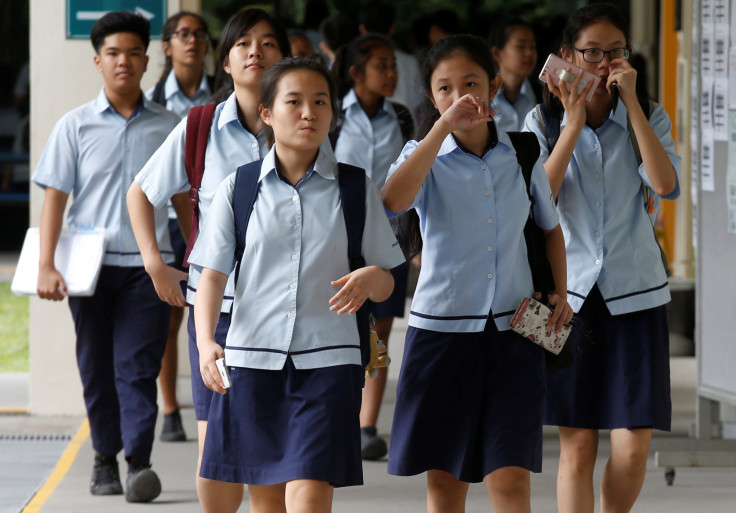World Bank Launches 'Human Capital' Rankings Based On Health, Education

The World Bank Group unveiled a new system on Thursday to rank countries based on their success in developing human capital, an effort to prod governments to invest more effectively in education and healthcare.
The bank's "Human Capital Index," showed poor African countries fared the worst in the rankings, with Chad and South Sudan taking the two lowest spots, while Singapore topped the list, followed by South Korea, Japan and Hong Kong.
The rankings, based on health, education and survivability measures, assess the future productivity and earnings potential for citizens of 157 of the World Bank's member nations, and ultimately those countries' potential economic growth.
The index was unveiled at the World Bank and International Monetary Fund annual meetings on the Indonesian island of Bali.
It found that on average 56 percent of children born today will forego more than half their potential lifetime earnings because governments were not investing adequately to ensure their people are healthy, educated and ready for an evolving workplace.
World Bank Group President Jim Yong Kim said he hoped the new index would encourage governments to take steps aimed at moving up the rankings, much as they seek to with the bank's popular "Doing Business" survey, which ranks countries based on ease of doing business, with low-tax, low regulation economies faring better.
Kim acknowledged that the rankings would be controversial, but told reporters that the need for more and better investment in people was "such that we couldn't shy away from making leaders uncomfortable".
"This is about drawing their attention to a crisis that we think is real. This is connected to productivity, this is connected to economic growth," Kim said.
He said there was "unanimous" acceptance among WorldBank member countries and the bank's board.
The index measures the mortality rate for children under five, early childhood stunting rates due to malnutrition and other factors, and health outcomes based on the proportion of 15-year-olds who survive until age 60. It measures a country's educational achievement based on the years of schooling a child can expect to obtain by age 18, combined with a country's relative performance on international student achievement tests.
Countries in Africa with high childhood stunting rates and low access to formal education fared worst, while wealthier nations with strong educational systems fared best.
In Chad, the lowest country ranked on the list, the World Bank said productivity and earnings potential would be only about 29 percent of what their potential would be under ideal conditions there.
In top-ranked Singapore, the earnings potential was 88 percent of potential, while in the United States, ranked 24th between Israel and Macau, productivity and earnings were measured at 76 percent of potential.
Kim said there were 28 countries, from Indonesia to Lesotho to Ukraine, who signed on as "early adopters" of the index to work with the World Bank to devise plans to improve their investment in health and education.
The bank has warned that a wave of automation and artificial intelligence will eliminate many low-skilled jobs in coming years, making it harder for people with low levels of education and poor health to compete for work.
The index showed that a country ranked at 50 percent, such as Morocco and El Salvador, would lose 1.4 percentage points of annual GDP growth compared to its potential under ideal health and education conditions.
(Reporting by David Lawder; editing by Eric Meijer)
-Reuters
© Copyright Thomson Reuters 2024. All rights reserved.





















